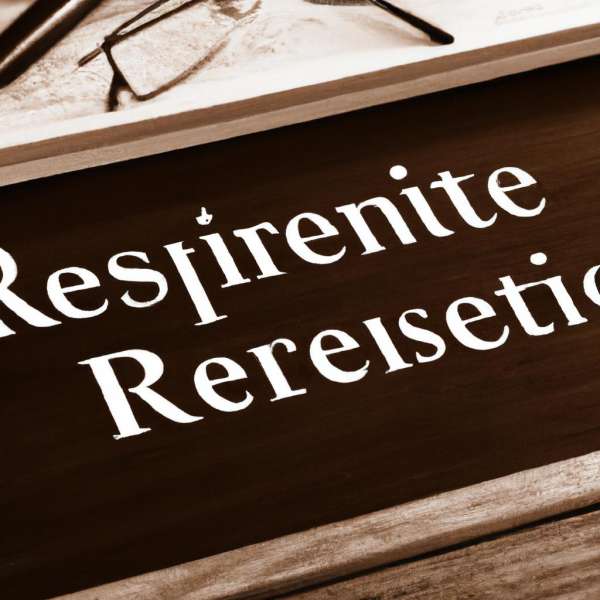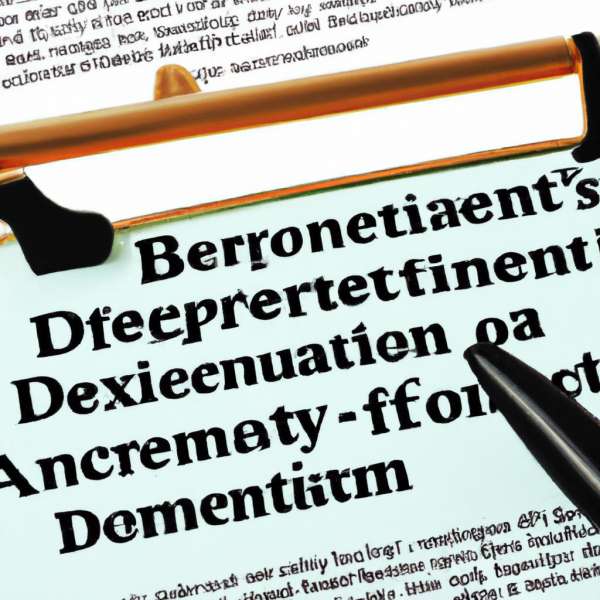As we journey through life, the importance of preparing for the future becomes increasingly clear. For many, retirement represents a rewarding chapter, a time to enjoy the fruits of one’s labor. Yet, amidst the excitement of planning for leisure and relaxation, one critical aspect often remains overlooked: estate planning for retirement accounts. While we diligently contribute to our 401(k)s, IRAs, and other retirement savings vehicles, the question of what happens to those assets when we’re no longer able to enjoy them can invoke a sense of unease. Proper estate planning can not only ensure that your hard-earned savings benefit your loved ones, but it also provides peace of mind knowing that your legacy is secure. In this article, we will explore the essentials of integrating estate planning with your retirement accounts, guiding you through the necessary steps to safeguard your financial future and the well-being of those you leave behind.
Understanding the Importance of Estate Planning for Retirement Accounts
When it comes to preparing for the future, many people often overlook the critical role that estate planning plays in managing retirement accounts. Retirement savings, such as 401(k)s and IRAs, are not just financial instruments; they represent years of hard work and careful saving. Ensuring that these assets are distributed according to your wishes after your passing is essential. Without proper estate planning, your retirement accounts may not reach the intended beneficiaries, potentially leading to financial distress and family conflict.
One of the most significant reasons to integrate estate planning with retirement accounts is to avoid unnecessary tax burdens. By designating beneficiaries properly, you can help reduce potential estate taxes and ensure that your heirs receive more of what you intended for them. **Key considerations include**:
- Beneficiary designations: Always keep these up to date to reflect life changes like marriage, divorce, or the birth of a child.
- Tax implications: Understand the IRA stretch options and the impact of distributions on your heirs’ tax liabilities.
- Trusts: Consider using trusts for better control over how funds are distributed, especially for minor children or beneficiaries with special needs.
In addition, it’s important to regularly review your estate plan in conjunction with your retirement plan. This ongoing process ensures that both aspects work harmoniously together. A well-organized estate plan can provide peace of mind, knowing that your financial legacy will be managed and passed on according to your wishes. The following table illustrates common pitfalls in retirement account estate planning:
| Common Pitfall | Consequences |
|---|---|
| Outdated beneficiary designations | Assets could go to unwanted parties or the estate. |
| Ignoring tax implications | Heirs may face significant tax bills reducing inheritances. |
| Failure to communicate with heirs | Confusion and disputes among family members after your passing. |
Ultimately, estate planning for retirement accounts is not just about ensuring your savings are passed on; it’s about creating a lasting legacy that aligns with your values and priorities.

Key Considerations for Beneficiary Designations
When it comes to retirement accounts, choosing the right beneficiaries is a critical aspect of estate planning that can greatly impact both the distribution of your assets and the financial well-being of your loved ones. Here are several factors to keep in mind:
- Intentions and Relationships: Clearly define who you want to inherit your accounts. This could include family members, friends, or charitable organizations. Consider how these relationships may change over time.
- Tax Implications: Different beneficiaries can face varying tax consequences. For example, spousal beneficiaries may benefit from certain tax breaks that non-spousal beneficiaries do not receive.
- Contingent Beneficiaries: Always name contingent beneficiaries as a safeguard. In case your primary beneficiary predeceases you or is unable to inherit, the contingent beneficiary will receive the assets, preventing unwanted outcomes.
- Updating Your Designations: Regularly review and update your beneficiary designations, especially after major life events such as marriage, divorce, or the birth of a child. This ensures that your assets are distributed according to your current wishes.
It is wise to have open conversations with your beneficiaries about your plans. This not only helps them understand their potential inheritance but also prepares them for any responsibilities that come with managing inherited retirement assets. Additionally, consider documenting your decisions and the rationale behind them.
| Type of Beneficiary | Pros | Cons |
|---|---|---|
| Spouse | Tax benefits, flexibility in withdrawals | May complicate future estate planning |
| Child | Direct support for education and needs | Potential for mismanagement of funds |
| Charity | Legacy, potential tax deduction | No personal benefit to family |
Deciding who will inherit your retirement accounts requires careful thought and an understanding of how the designation will impact your beneficiaries. Taking the time to plan can provide peace of mind and ensure that your financial legacy is preserved in accordance with your wishes.

Tax Implications and Strategies for Inherited Retirement Accounts
When it comes to inherited retirement accounts, understanding the tax implications is vital for effective estate planning. Generally, when an individual inherits a retirement account, such as an IRA or 401(k), they must consider how withdrawals will be taxed. The IRS imposes specific rules regarding distributions based on the relationship of the beneficiary to the original account holder.
Here are some key points to keep in mind regarding tax implications:
- Beneficiary Type: The tax treatment can vary significantly depending on whether the beneficiary is a spouse or a non-spouse. Spousal beneficiaries may have options such as treating the inherited account as their own, while non-spouse beneficiaries typically must follow the 10-year rule.
- Taxable Amounts: Distributions taken from the inherited account are typically subject to income tax at the beneficiary’s current tax rate, making strategic withdrawal planning crucial to minimize overall tax liability.
- State Taxes: In addition to federal taxes, it’s essential to consider state income tax implications, which can impact the net amount received from distributions.
To navigate these complexities and optimize benefits from inherited retirement accounts, beneficiaries may consider the following strategies:
- Stagger Withdrawals: By spreading out withdrawals across multiple years, beneficiaries can potentially stay within a lower tax bracket.
- Invest In Tax-Deferred Accounts: Reinvesting distributions into other tax-advantaged accounts may help in deferring additional taxation on investment growth.
- Consult a Financial Advisor: Seeking professional guidance can help in devising a personalized withdrawal strategy that aligns with the beneficiary’s financial circumstances and long-term goals.
To provide a clearer view of the differences between spousal and non-spousal beneficiaries, consider the following table:
| Beneficiary Type | Options | Tax Implications |
|---|---|---|
| Spouse | Can treat as their own or roll over | Potential for tax deferral until age 72 |
| Non-Spouse | Must distribute within 10 years | Taxed in year withdrawn; no rollover |

Integrating Estate Planning with Overall Financial Goals
Estate planning is not just about drafting a will or designating beneficiaries; it is a vital component that must seamlessly align with your broader financial goals. When considering your retirement accounts, understanding how they fit into your overall estate plan can significantly affect your legacy. A well-structured estate plan encompasses all your assets, ensuring that your retirement funds contribute positively to your financial objectives while also protecting your loved ones.
To start, it’s essential to consider the **beneficiary designations** on your retirement accounts. These designations override any directions mentioned in your will, so they provide a direct transfer of assets upon your passing. Here are key factors to consider:
- Primary vs. Contingent Beneficiaries: Ensure you have designated both primary and contingent beneficiaries to avoid complications during the transfer process.
- Review Regularly: Life changes, such as marriage, divorce, or the birth of a child, may require updates to your beneficiary designations.
- Tax Implications: Understanding the tax consequences of your retirement accounts on your heirs can help you devise strategies to minimize their tax liabilities.
Incorporating estate planning with your retirement accounts may also involve analyzing the **types of accounts** you have. Different accounts have different rules and consequences upon death. A comparison table can help clarify:
| Account Type | Distribution Rules | Tax Consequences |
|---|---|---|
| Traditional IRA | Taxable income during distribution | Subject to income tax for heirs |
| Roth IRA | Tax-free qualified distributions | No income tax for beneficiaries |
| 401(k) | Treated as ordinary income | Taxable for non-spouse beneficiaries |
By integrating your estate planning considerations with your retirement strategy, you not only enhance the financial security of your heirs but also uphold the values and wishes you hold dear. Aligning these elements can create a harmonious financial legacy that supports your familial goals while minimizing the burdens on your loved ones.
Insights and Conclusions
As we draw the curtain on our exploration of estate planning for retirement accounts, it becomes clear that the journey toward financial security doesn’t end with accumulation. Rather, it extends into the realm of thoughtful distribution and intentional legacy. In a world where unexpected twists can disrupt even the most meticulously crafted plans, having a clear strategy for your retirement accounts ensures that your hard-earned assets are passed on according to your wishes.
Ultimately, effective estate planning is about more than just numbers and documents; it’s about preserving your values and leaving a lasting impact on your loved ones. By prioritizing these considerations today, you can navigate the complexities of retirement accounts with confidence and clarity. Remember, planning for the future today can lighten the burdens of tomorrow, securing not just your financial legacy, but also the peace of mind that comes from knowing you’ve prepared wisely.
As you embark on this important endeavor, consider seeking professional guidance to tailor a plan that reflects your unique circumstances. Your legacy is worth the investment. So take a moment, breathe deep, and embrace the future with the understanding that your thoughtful planning today can create a brighter tomorrow for those you hold dear.


